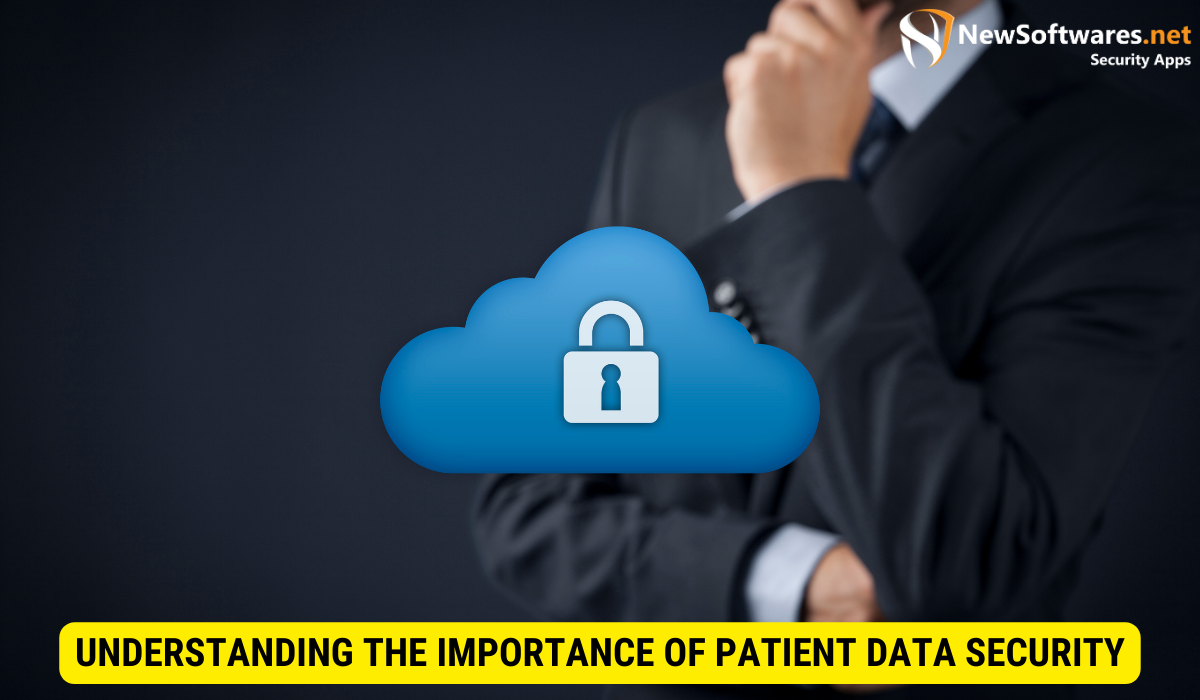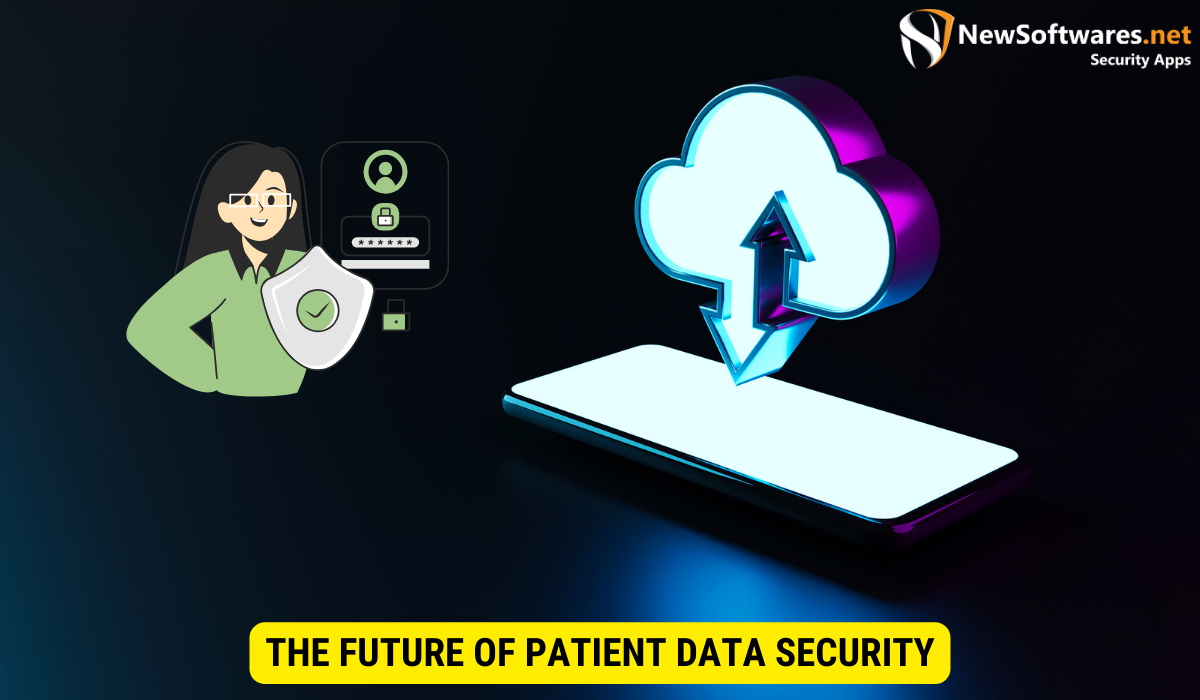To secure patient data and adhere to federal standards, healthcare organizations should implement robust access controls, regularly back up and encrypt data, train staff on security protocols, comply with HIPAA and HITECH standards, and invest in strong cybersecurity measures.
Patient data security is of utmost importance in the healthcare industry. As technology continues to advance, it becomes increasingly crucial to protect sensitive patient information from unauthorized access, misuse, and cyber threats. Healthcare providers and organizations must adhere to federal standards to ensure the privacy and security of patient data. Together, we will delve into the importance of patient data security, the basics of federal standards, best practices for securing patient data, and overcoming challenges in this field. We will also explore the future trends in patient data security.
Understanding the Importance of Patient Data Security

Patient data security plays a pivotal role in maintaining trust and confidence in the healthcare system. Patients share their sensitive information, such as medical records and personal details, with healthcare providers, expecting it to be kept confidential. By safeguarding patient data, healthcare organizations demonstrate their commitment to privacy and instill confidence in patients.
Ensuring patient data security involves implementing robust measures to protect sensitive information from unauthorized access, breaches, and potential threats. These measures include encryption, access controls, firewalls, and regular security audits. Healthcare providers must also train their staff on data security best practices and establish protocols for handling and storing patient data securely.
The Role of Federal Standards in Healthcare
Healthcare in the United States is governed by several federal standards that are implemented to ensure the security of patient data. These standards mandate healthcare providers, such as hospitals, clinics, and private practitioners, to adopt specific measures to protect patient information.
The Health Insurance Portability and Accountability Act (HIPAA) is one such federal standard that sets the guidelines for patient data security. HIPAA requires healthcare providers to implement administrative, physical, and technical safeguards to protect patient data. These safeguards include conducting risk assessments, implementing access controls, encrypting data, and training staff on privacy and security practices.
In addition to HIPAA, the Centers for Medicare and Medicaid Services (CMS) also play a role in ensuring patient data security. CMS requires healthcare providers to comply with the Electronic Health Record (EHR) Incentive Programs, which include measures to protect patient data and promote interoperability between different healthcare systems.
Why Patient Data Security is Crucial
Securing patient data is crucial for several reasons. Firstly, unauthorized access to patient data can lead to medical identity theft, resulting in financial loss and potential harm to patients. Medical identity theft occurs when someone fraudulently uses another person’s medical information to obtain healthcare services, prescription drugs, or insurance coverage.
Furthermore, breaches in patient data security can have severe consequences for both patients and healthcare providers. In addition to financial loss, patients may experience emotional distress and damage to their reputation if their sensitive information is exposed. Healthcare providers may face legal and financial repercussions, as well as damage to their reputation and patient trust.
Additionally, breaches in patient data security can erode patient trust in healthcare providers and ultimately compromise the quality of care. When patients feel that their information is not adequately protected, they may hesitate to share important details with their healthcare providers, leading to incomplete medical histories and potential misdiagnoses.
Moreover, patient data is a valuable resource for medical research and improving healthcare outcomes. By ensuring data security, healthcare organizations can confidently contribute to research initiatives and collaborate with other institutions, leading to advancements in medical knowledge and the development of more effective treatments.
In conclusion, patient data security is of utmost importance in the healthcare industry. By implementing robust security measures and complying with federal standards, healthcare providers can protect patient information, maintain trust, and ensure the delivery of high-quality care.
The Basics of Federal Standards for Patient Data
Let’s now explore the key federal standards that healthcare organizations must comply with to ensure patient data security.
Ensuring the security of patient data is of utmost importance in the healthcare industry. With the advancement of technology and the increasing use of electronic health records (EHRs), it has become crucial for healthcare organizations to adhere to federal standards that protect sensitive patient information.
One of the most significant federal laws in this regard is the Health Insurance Portability and Accountability Act (HIPAA). HIPAA sets standards for protecting patient data and mandates healthcare organizations to implement administrative, physical, and technical safeguards. These safeguards are designed to ensure the confidentiality, integrity, and availability of patient information.
Administrative safeguards involve the implementation of policies and procedures that govern the use and disclosure of patient data. This includes conducting regular risk assessments, training employees on data security practices, and establishing contingency plans in case of data breaches.
Physical safeguards focus on the physical protection of patient data. This includes securing electronic devices and systems that store patient information, as well as controlling access to areas where patient data is stored.
Technical safeguards, on the other hand, involve the use of technology to protect patient data. This includes implementing access controls, encrypting data during transmission and storage, and regularly monitoring and auditing systems for any potential security breaches.
HIPAA and Its Impact on Data Security
The Health Insurance Portability and Accountability Act (HIPAA) is a federal law that sets standards for protecting sensitive patient data. HIPAA mandates healthcare organizations to implement administrative, physical, and technical safeguards to ensure the confidentiality, integrity, and availability of patient information.
Compliance with HIPAA is not only a legal requirement but also essential for maintaining patient trust. By adhering to HIPAA regulations, healthcare organizations demonstrate their commitment to safeguarding patient data and protecting their privacy rights.
HIPAA also includes provisions for breach notification, requiring healthcare organizations to notify affected individuals and the Department of Health and Human Services (HHS) in the event of a data breach. This ensures transparency and allows individuals to take necessary steps to protect themselves from potential harm.
Furthermore, HIPAA compliance extends beyond healthcare providers to include business associates, such as third-party vendors and contractors, who handle patient data on behalf of healthcare organizations. This ensures that all entities involved in the handling of patient data are held accountable for maintaining its security.
HITECH Act: A Closer Look
The Health Information Technology for Economic and Clinical Health (HITECH) Act complements HIPAA by strengthening data security measures. It encourages the adoption and meaningful use of electronic health records (EHRs) while introducing stricter penalties for non-compliance with data security regulations.
The HITECH Act recognizes the potential benefits of EHRs in improving healthcare delivery and patient outcomes. It provides incentives for healthcare organizations to adopt EHRs and use them in a meaningful way, such as sharing patient information securely and efficiently among healthcare providers.
At the same time, the HITECH Act emphasizes the importance of data security and privacy. It introduces stricter penalties for non-compliance with HIPAA regulations, including increased fines for data breaches and unauthorized disclosures of patient information.
Under the HITECH Act, healthcare organizations are also required to conduct regular risk assessments to identify vulnerabilities in their data security practices. This proactive approach helps organizations identify and address potential security risks before they can be exploited.
In conclusion, compliance with federal standards, such as HIPAA and the HITECH Act, is crucial for healthcare organizations to ensure the security of patient data. By implementing administrative, physical, and technical safeguards, healthcare organizations can protect sensitive patient information and maintain patient trust in an increasingly digital healthcare landscape.
Best Practices for Securing Patient Data
Implementing strong patient data security practices is vital to protect sensitive information from unauthorized access and cyber threats. Let’s explore some best practices that healthcare organizations should adopt.
Implementing Strong Access Controls
Controlling access to patient data is essential to prevent unauthorized individuals from viewing or modifying sensitive information. Healthcare organizations should implement role-based access control (RBAC) systems, requiring users to authenticate themselves and granting access based on their roles and responsibilities.
Regular Data Backup and Encryption
Regular data backup is crucial to ensure that patient data is recoverable in the event of a system failure or cyberattack. Furthermore, encrypting stored and transmitted data adds an extra layer of protection by rendering it unreadable to unauthorized individuals.
Training Staff on Data Security Protocols
Human error is a significant cause of data breaches in the healthcare industry. It is essential to educate staff on data security best practices and train them to identify and report any potential security threats. Regular training sessions can help increase awareness and promote a culture of data security within healthcare organizations.
Overcoming Challenges in Patient Data Security
Despite adhering to federal standards and implementing best practices, healthcare organizations face several challenges in ensuring patient data security.
Dealing with Cyber Threats and Attacks
Cyber threats continue to evolve, posing significant risks to patient data security. Healthcare organizations must invest in robust cybersecurity measures, including firewalls, intrusion detection systems, and proactive threat intelligence, to prevent and mitigate cyber attacks.
Ensuring Compliance Amid Technological Advances
Rapid technological advancements present both opportunities and challenges in patient data security. Healthcare organizations must keep pace with emerging technologies such as telemedicine, wearable devices, and cloud storage while ensuring compliance with federal standards and maintaining data security.
The Future of Patient Data Security

As technology and healthcare continue to evolve, so too does the landscape of patient data security. Let’s explore some emerging trends that will shape the future of this field.
Emerging Trends in Data Security
The use of blockchain technology holds great potential in ensuring the security and integrity of patient data. Blockchain’s decentralized and tamper-resistant nature can mitigate the risks associated with centralized databases and provide a more secure environment for storing and sharing patient information.
The Role of AI and Machine Learning in Data Protection
Artificial Intelligence (AI) and Machine Learning (ML) are being increasingly utilized in healthcare to enhance patient data security. AI-powered systems can detect patterns and anomalies in data, enabling early detection of security breaches and facilitating real-time threat response.
Key Takeaways
- Patient data security is of utmost importance in the healthcare industry to maintain trust and confidence.
- Key federal standards, such as HIPAA and HITECH Act, mandate healthcare organizations to protect patient data.
- Implementing strong access controls, regular data backup, and training staff are essential best practices for securing patient data.
- Cyber threats and technological advances pose challenges in patient data security.
- The future of patient data security includes emerging trends such as blockchain and AI.
FAQs
How important is patient data security in healthcare?
Patient data security is crucial in healthcare as it ensures the privacy and confidentiality of sensitive information, maintains patient trust, and upholds the quality of care.
What are some federal standards governing patient data security?
Key federal standards include the Health Insurance Portability and Accountability Act (HIPAA) and the Health Information Technology for Economic and Clinical Health (HITECH) Act.
Why is access control crucial for patient data security?
Access control helps prevent unauthorized individuals from accessing or modifying sensitive patient data, thereby reducing the risk of data breaches and medical identity theft.
How can healthcare organizations overcome challenges in patient data security?
Healthcare organizations can invest in robust cybersecurity measures, provide regular staff training, and adapt to technological advancements while ensuring compliance with federal standards.
What is the role of AI and machine learning in patient data security?
AI and machine learning can enhance patient data security by detecting patterns and anomalies in data, facilitating real-time threat response, and improving overall data protection.
Conclusion
Adhering to federal standards and implementing best practices for securing patient data is essential in the healthcare industry. Healthcare organizations must prioritize patient data security to maintain trust, comply with regulations, and protect sensitive information from cyber threats. As technology continues to advance, healthcare providers must adapt to emerging trends in data security to safeguard patient data in the future.
